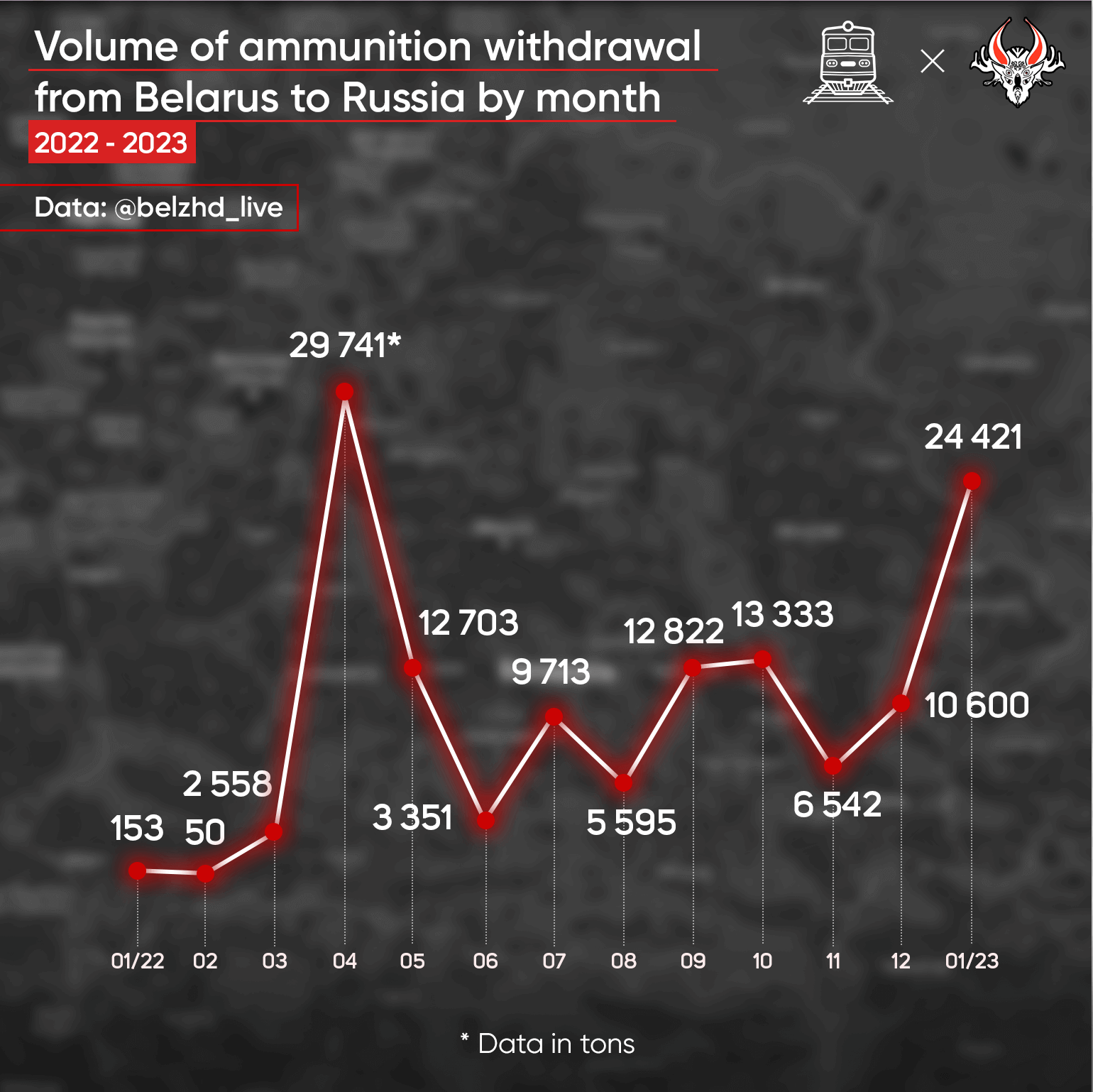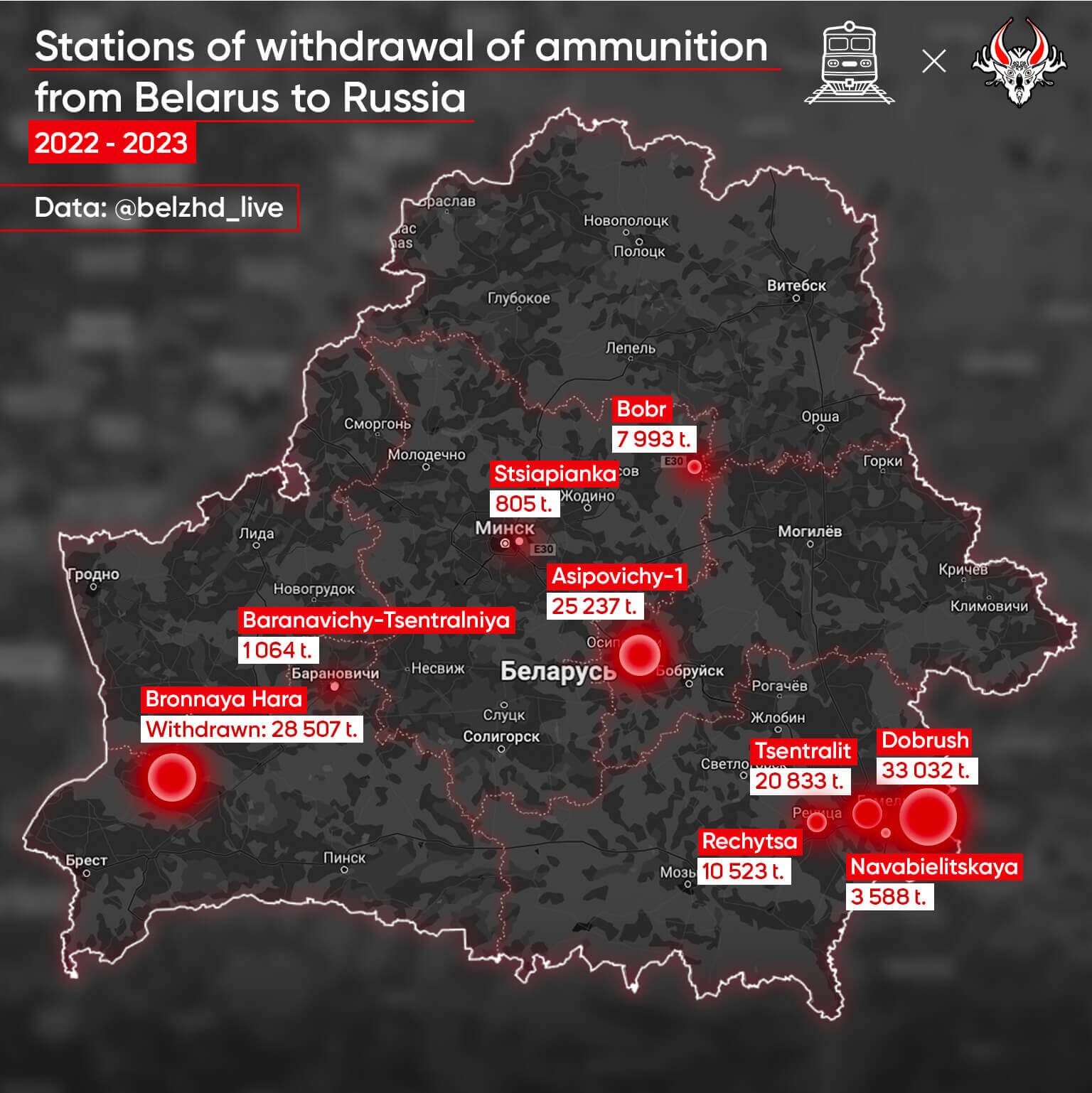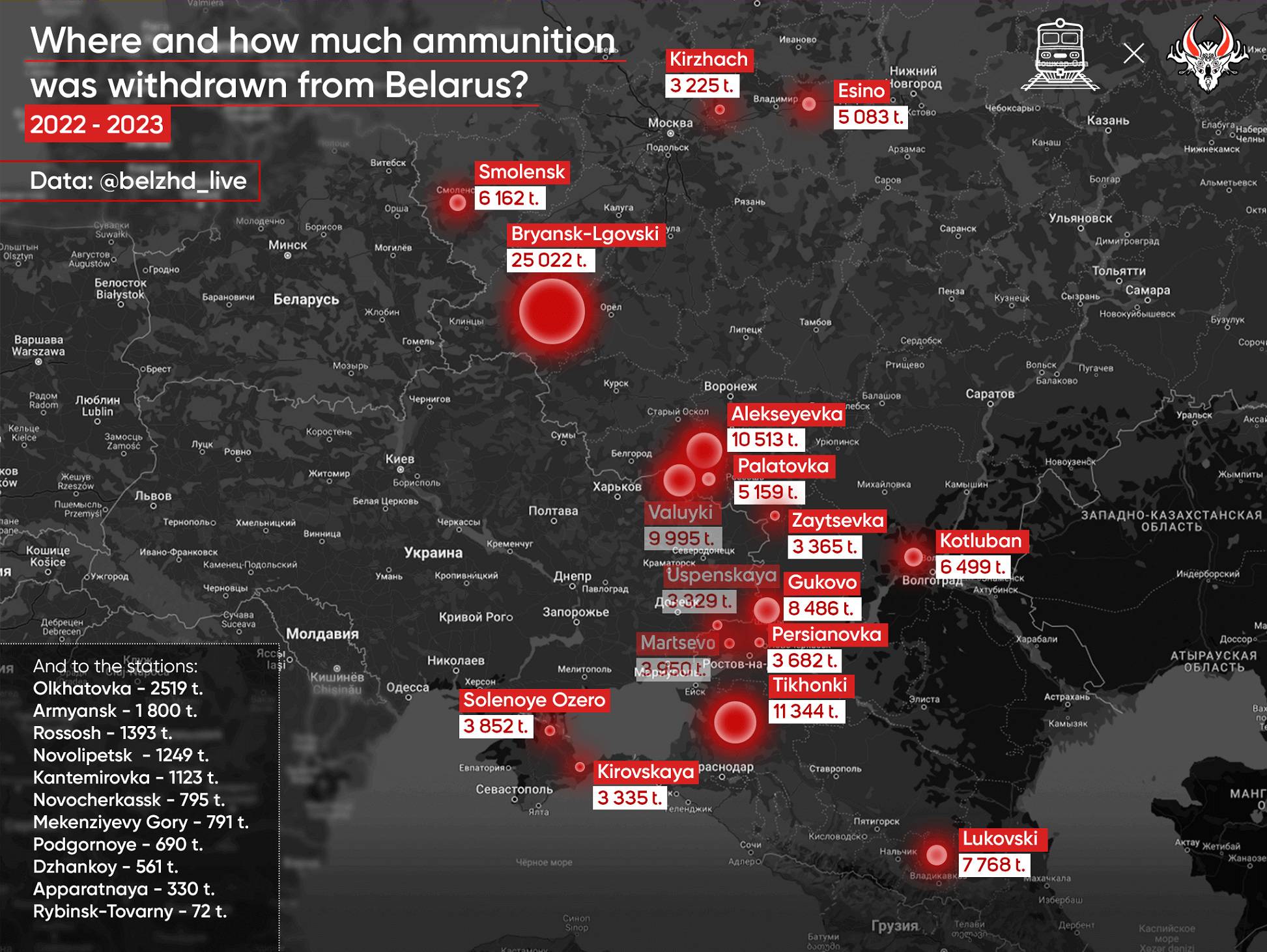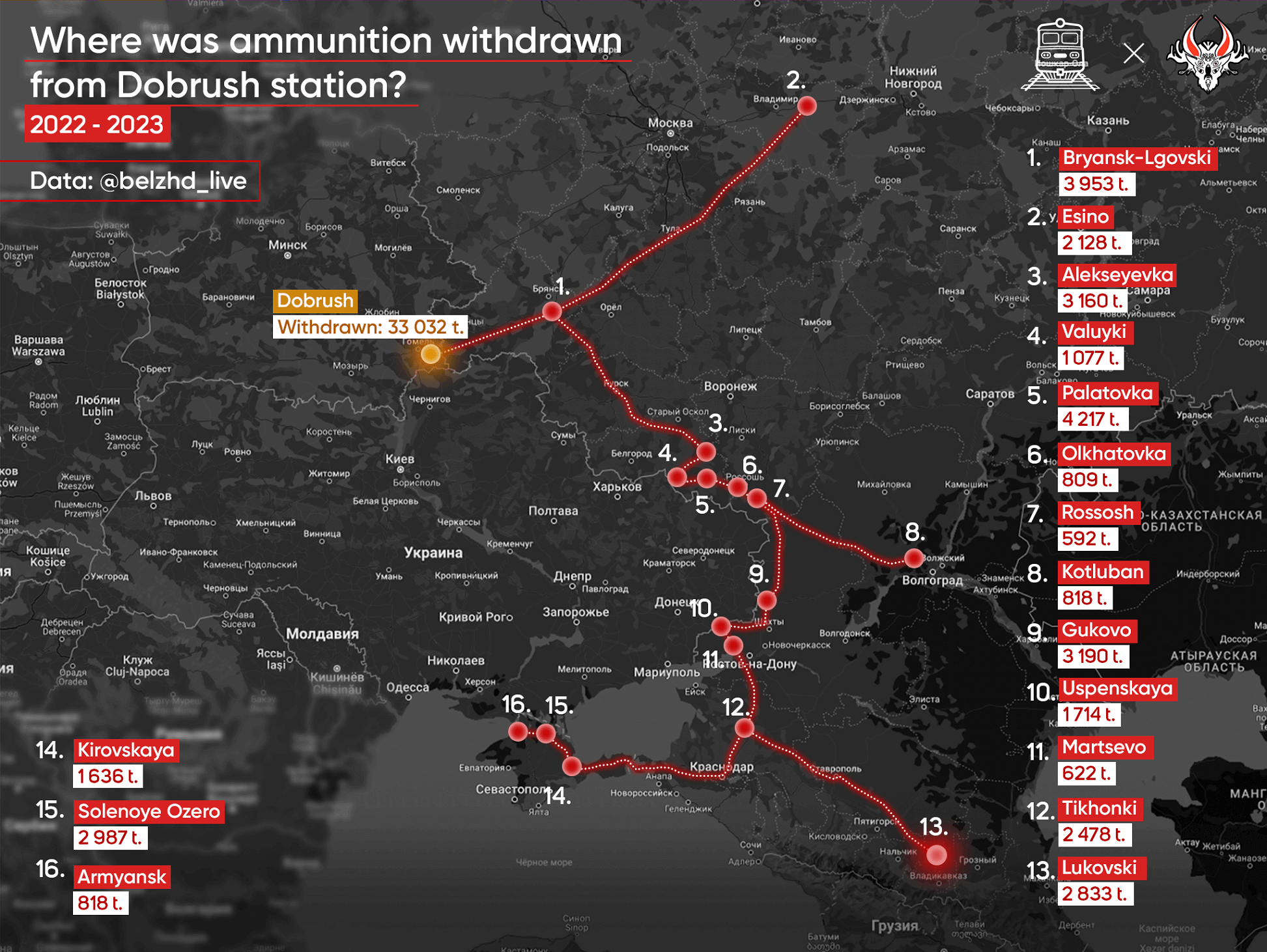Ammunition was withdrawn to the areas bordering Ukraine and directly to the occupied territories of the country.
The community of railway workers of Belarus published data on the withdrawal of ammunition from the territory of Belarus to Russia and the temporarily occupied territories of Ukraine for a year — from January 2022 to February 2023.
This data shows that the Lukashenko regime has transferred 131,582 tons of ammunition to Russia in a year.
You can read the full data by @belzhd_live here, and we provide the most important information unchanged.
When and how much ammunition was withdrawn from Belarus?
The volume of ammunition withdrawal for 13 months (January 2022-January 2023) was 131,582 tons. Thus, on average, ≈10,121 tons were withdrawn per month. Before Putin’s full-scale invasion of Ukraine, the volumes were dozens of times smaller and began to grow immediately after February 24.

In January and February 2022, 203 tons were withdrawn to Russia, and already in March 2022, 12,5 times more — 2,558 tons. And the next month, in April 2022, there was a peak in the volume of ammunition withdrawn to Russia for the entire analyzed period — 29,741 tons in a month.
The second highest volume month was January 2023 — 24,421 tons.
Where exactly was the ammunition withdrawn from Belarus?
The largest withdrawals during the analyzed period took place from 9 railway stations on the territory of Belarus. The largest number of shells were withdrawn from:
- The 43rd missile and ammunition arsenal (Dobrush railway station) — 33,032 tons
- The 46th missile and ammunition arsenal (Bronnaya Hara railway station) — 28,507 tons
- The 1405th artillery base (Asipovichy-1 station) — 25,237 tons

The withdrawal also took place from the railway stations: Tsentralit (20,833 tons), Bobr (7,993 tons), Rechytsa (10,523 tons), Baranavichy-Tsentralniya (1,064 tons), Navabielitskaya (3,588 tons) and Stsiapianka (805 tons).
Where was ammunition withdrawn from Belarus?
The ammunition transferred by the Lukashenko regime to Russia were withdrawn not only to the territory of Russia, but also directly to the temporarily occupied territories of Ukraine, including Crimea, as well as to the area bordering Georgia.
Stations where the highest number was delivered are the following:
- Bryansk-Lgovski (Bryansk, Bryansk oblast) — 25,022 tons
- Tikhonki (Krasnodar Krai) — 11,344 tons
- Alekseyevka (Alekseyevka, Belgorod oblast) — 10,513 tons

Ammunition was delivered directly to Crimea to the following stations: Kirovskaya (3,335 tons), Solyonoye Ozero (3,852 tons), Dzhankoy (561 tons) and Armyansk (1,800 tons). It should also be noted that 7,768 tons of ammunition were delivered to Lukovski station (Mozdok district, Republic of North Ossetia), which is ≈110 km from the border with Georgia.
Where was ammunition withdrawn from Dobrush station?
As mentioned above, the highest amount of ammunition was sent from Dobrush station (Homiel region, Belarus), near which the 43rd missile and ammunition arsenal is located. A record 33,032 tons were sent from Dobrush to Russia in a year.
From there, ammunition was taken to Crimea, Vladimir oblast, the area bordering the occupied Donetsk and Luhansk oblasts, and to the area 110 km from Georgia.

Most of the ammunition from Dobrush station was withdrawn to Palatovka station (Livenka, Belgorod oblast), which is located 40 km from the border with Ukraine.
For more information about the withdrawal of ammunition from Belarus in a year, see here.
The data given shows the scale of the involvement of the Lukashenko regime in the war on Putin’s side. This is another proof of Lukashenko’s complicity in the aggression against Ukraine, along with the provision of training grounds for the mobilized soldiers of the Russian Armed Forces, missile strikes from the territory of Belarus and, of course, the invasion of the Russian Armed Forces from the territory of Belarus in February 2022. Lukashenko, like Putin, is a war criminal, and he must be held accountable.
